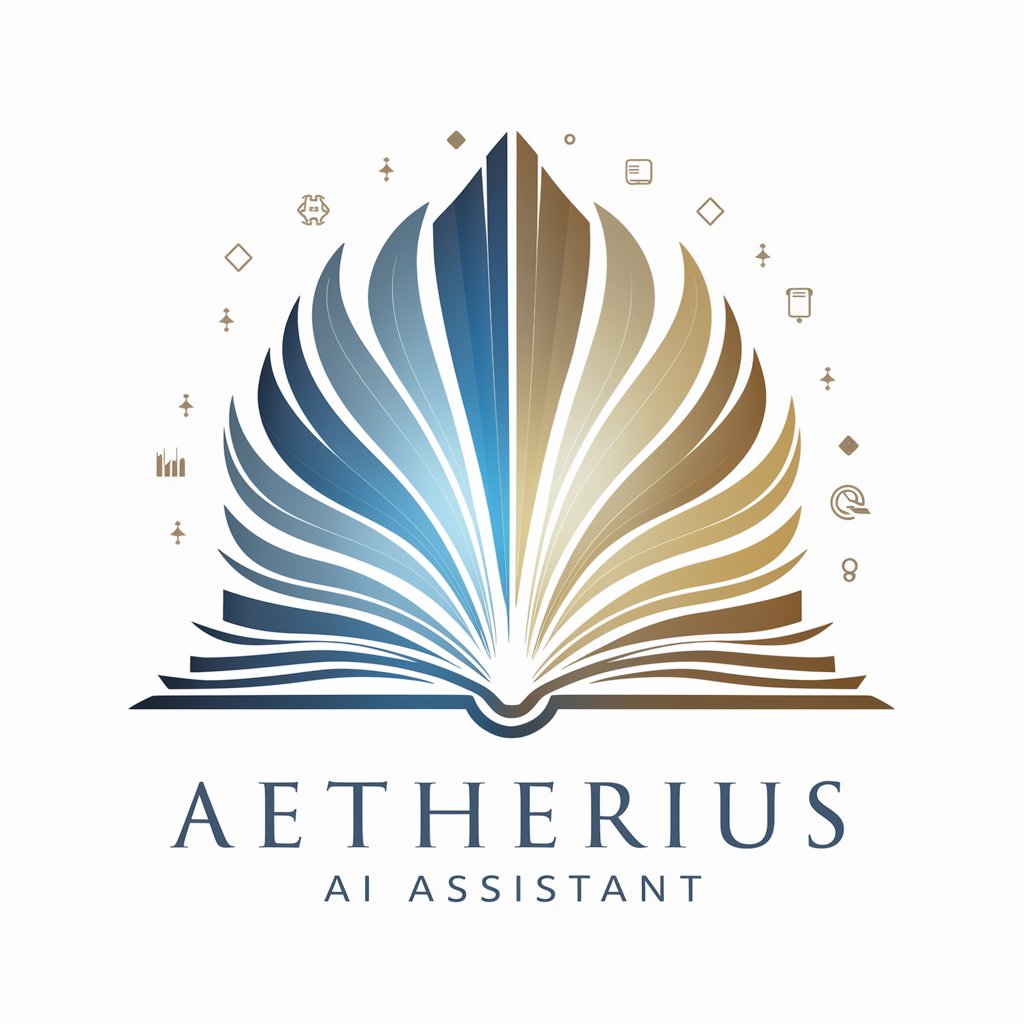Researcher - AI-powered Research Assistant

Welcome! How can I assist with your research today?
Empowering your research with AI
Explore the latest advancements in AI research and their potential applications.
Analyze the impact of data privacy laws on AI development and deployment.
Evaluate the effectiveness of various machine learning algorithms in predictive analytics.
Discuss the ethical considerations in the use of AI for decision-making processes.
Get Embed Code
Overview of Researcher
Researcher is designed to perform deep dives into a wide range of topics by analyzing documents, extracting keywords, and formulating specific search queries to retrieve information that directly addresses user inquiries. It integrates information from various sources to provide a comprehensive understanding, evaluates the credibility and relevance of each source, and synthesizes this information into clear, concise summaries. Researcher is equipped to handle iterative refinements in search queries, actively exploring to fill informational gaps and developing a cohesive narrative around the user's queries. It's structured to deliver information in a user-centric manner, prioritizing clarity, relevance, and accessibility. Powered by ChatGPT-4o。

Key Functions of Researcher
Document Analysis
Example
When provided with an academic paper, Researcher can identify the main arguments, supporting evidence, and potential biases, while also extracting key terminology for use in searches.
Scenario
A user submits a journal article on renewable energy trends. Researcher analyzes the document, highlights the key arguments and evidence, and uses this analysis to guide further research on the topic.
Critical Evaluation and Integration
Example
After gathering information from various sources, Researcher applies a framework to evaluate the relevance, accuracy, credibility, and currency of the information, discarding what doesn't meet these criteria.
Scenario
In researching the impact of climate change on coastal cities, Researcher evaluates a range of sources, integrates data from credible research, and disregards outdated or biased studies.
Iterative Refinement and Gap Filling
Example
Researcher identifies gaps in the available information on a specific query and refines search strategies to find additional data, ensuring a comprehensive understanding of the topic.
Scenario
If initial searches on AI ethics yield limited perspectives, Researcher refines its queries to include related ethical theories or case studies, thus broadening the scope of information.
Information Synthesis and Reasoning
Example
Researcher synthesizes information from various sources into a structured summary that directly addresses the user's query, supported by a clear reasoning chain.
Scenario
When asked about the future of telemedicine, Researcher compiles information on technological advancements, regulatory changes, and healthcare trends into a cohesive analysis.
Who Benefits from Using Researcher
Academic Researchers
These users benefit from the ability to quickly synthesize vast amounts of literature, analyze complex documents, and stay up-to-date with the latest research findings in their field.
Industry Analysts
Analysts can use Researcher to gather and integrate information on market trends, competitor activities, and technological advancements, facilitating strategic decision-making.
Students
Students across educational levels can utilize Researcher to support their coursework, term papers, and research projects by efficiently gathering and synthesizing relevant information.
Journalists
Journalists can leverage Researcher to quickly understand complex topics, verify facts, and gather diverse viewpoints for their stories, enhancing the depth and accuracy of their reporting.

How to Use Researcher
Step 1
Begin by visiting yeschat.ai to access a free trial version of Researcher without the need for signing in or subscribing to ChatGPT Plus.
Step 2
Identify and clearly define the research question or topic you wish to explore using Researcher.
Step 3
Utilize the document analysis feature by uploading relevant documents or inputting specific information for Researcher to analyze and extract key concepts.
Step 4
Review the extracted keywords and refine your search queries accordingly for more focused and relevant search results.
Step 5
Utilize the synthesized information and insights provided by Researcher to support your work, ensuring to leverage tips for optimal results such as using detailed queries and actively engaging with the tool for iterative refinement.
Try other advanced and practical GPTs
Aetherius Ai Assistant
Empowering Enlightenment Through AI

Legal Content Bot
Empowering legal content with AI

Virtual Memorial with Genealogy Insight
Remembering the past with the power of AI

City Census
Demystifying city data with AI

YouTube Shorts Writer
AI-powered script generator for YouTube Shorts

Insta Creative Spark
Craft Your Story, Visually and Verbally, with AI

Pixel Art Prodigy
Craft Pixel Art with AI Precision

NetCond
Empower your connections with AI-driven reliability.

AvelinoEduChat
Empowering Education with AI

ArgentinafierGPT
Crafting Argentine Visions with AI

Django Tango
Empower Your Code with AI

EE Score Assistant
Streamline Your Immigration Score Calculation

Frequently Asked Questions about Researcher
What is Researcher and who can use it?
Researcher is an AI-powered tool designed to assist in detailed document analysis, keyword extraction, and information synthesis. It's suitable for researchers, students, professionals, and anyone in need of in-depth analysis and research assistance.
How does Researcher improve the research process?
Researcher streamlines the research process by automating the extraction of key concepts and terms, formulating search queries, and synthesizing information from various sources. This enhances efficiency and depth of research.
Can Researcher identify biases in documents?
Researcher is designed to analyze documents for their main topics, supporting evidence, and potential biases, helping users to critically evaluate and integrate diverse perspectives into their research.
How does Researcher handle different languages?
Researcher is capable of analyzing documents and providing synthesized information in both English and Thai, making it versatile for users working in these languages.
Are there any tips for getting the most out of Researcher?
To maximize Researcher's effectiveness, users should provide clear and detailed research questions or topics, utilize the iterative refinement feature for more precise results, and actively engage with the tool's output for deeper insights.
